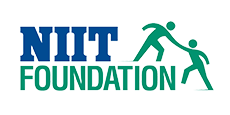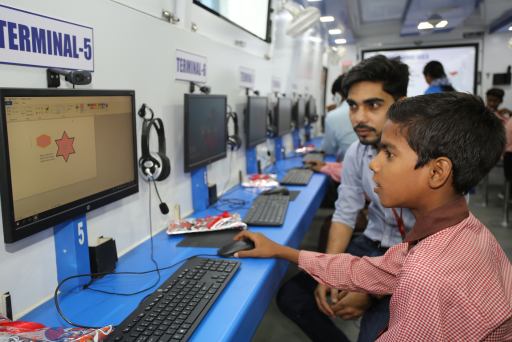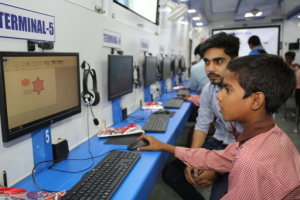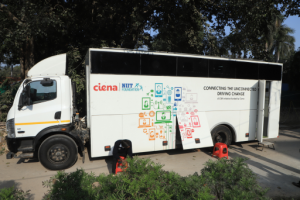Expressing the Gratitude
We at NIIT Foundation (NF) are celebrating 15 years of establishment by expressing our gratitude and appreciation to all those who helped us reach where we are today. This includes the NF team, NGO partners, funders, students, parents and many others. The challenge is to demonstrate our gratitude to the stakeholders with our actions in addition to our words.
As an example, to show our gratitude, we at NF, decided to listen our employees voice better and create a healthier and life nurturing work environment. To this effect, we started with a change in our employee policies to include Saturday leave, encourage work from home etc., co-create system and process with collective wisdom to make employee more participative in organisational deliverables, commitments and growth.
We show gratitude in action to our NGO partners too. For this 15th anniversary celebration, we chose some NGO Partners based on needs we had observed during our visits to their locations. For chosen NGO partners, we have decided to support them in setting up their centers, to train the Master Trainers & other Trainers and also to support them with the literacy program.
COVID-19 Outbreak
When COVID-19 struck, our students at NIIT Foundation reached out for support. These students come from underprivileged families, reside in villages and areas with substandard housing, and their parents are mostly daily wage workers. Left without a source of income, a few requested cash, while others needed essentials such as groceries and medical supplies. We did everything we could to provide for them, but we knew there was a lot more we had to do.
Yes, social distancing is the only way an individual can limit the spread of COVID-19, but not every family can afford to stay at home and stay safe. We knew that the need of the hour was a proactive, large-scale humanitarian effort to provide help where it is most needed.
Coming together to help
At NIIT Foundation, we wanted to take a focused approach to help those impacted due to COVID-19. We launched the “Zindagi Ke Saath” programme to find more relevant ways to do good in these times of crisis; going far beyond our regular mandate of positively impacting the lives of the underserved through training and education.
We wanted to create the maximum impact in the shortest amount of time. With 150 centres across India, nearly 200 partner centres, and direct access to over 10,000 families, we felt that tapping into our existing student databases would be the best place to start. We set up volunteering teams across 20+ Indian cities, comprising our employees and our student ‘Changemakers’. These ‘Changemakers’ have been formally trained to undertake philanthropic work, and during the current crisis, they have truly risen to the occasion!
Creating and executing impactful programmes
Our first initiative involves giving families cash in hand. We conducted a study to understand how much money a family needs to survive, and created two models:
- INR 2000 model to provide cash to families, allowing them to sustain for a month
- INR 1500 to spread awareness about healthy practices, and providing health-related supplies, enabling the families to stay home and stay safe. Under this, we have so far distributed 10,000 masks to families in the Delhi NCR area.
Our second initiative focuses on providing meals to those in need through special schools. We provide cooked meals to visually impaired and physically challenged students through our partner schools. We have reached thousands of students across five schools in Delhi NCR.
Continuing our community efforts
What this crisis has highlighted to us is that there are so many ways each of us, as individuals, can contribute to our communities. We can make donations to not-for-profits providing relief during the crisis, especially to migrant labourers and at-risk families. We can volunteer with organisations providing critical service. And we can stay at home to stay safe and contain the spread of this pandemic. Now is the time for each of us to find a way to make a difference, because every bit counts.
To find out more about NIIT Foundation’s initiatives for those impacted due to COVID-19, visit our website.
















